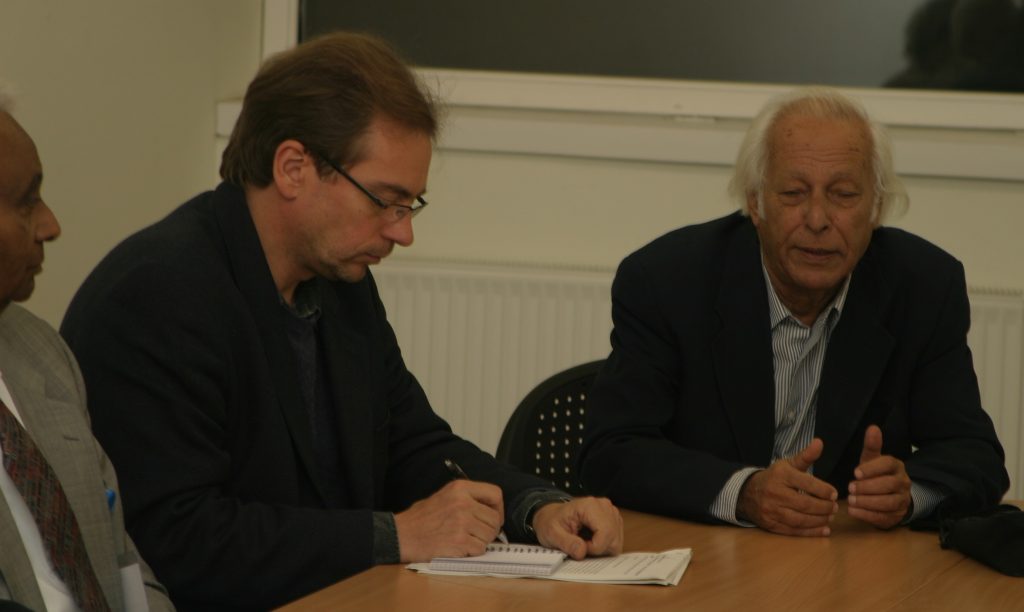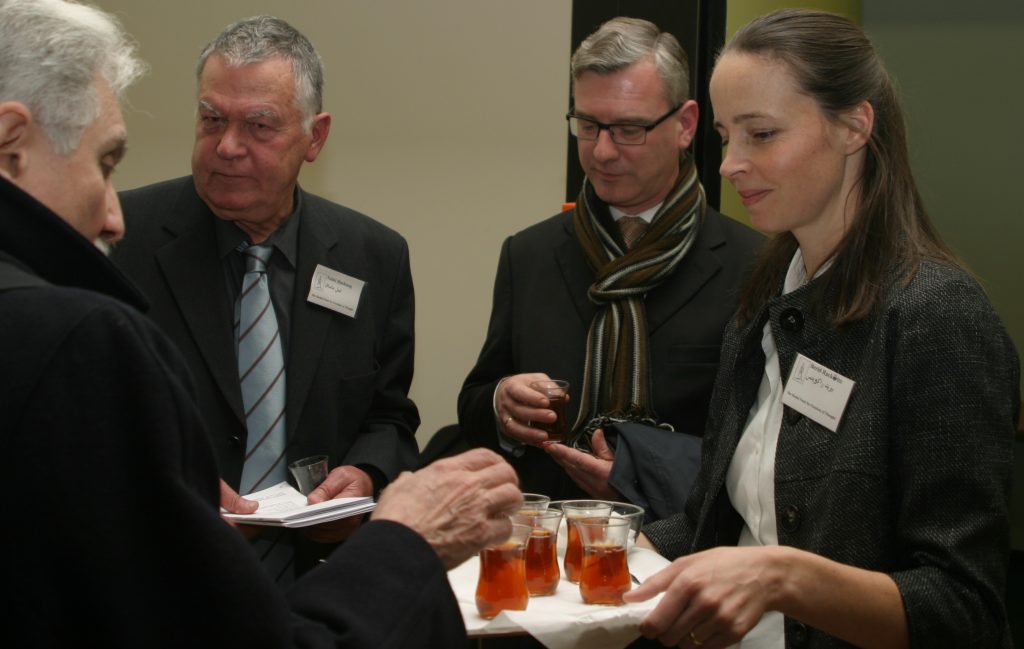Ibn Rushd Prize 2009
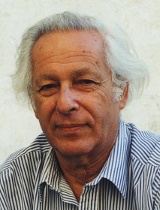
was announced to be awarded to
an Arab expert of economy who has – either in theory or in practice – tackled in his/her work the problems of economical development in the Arab World.
- Call for Nomination العربية DeutschCall for Nomination The Ibn Rushd Fund for Freedom of Thought will award its Prize 2009 to an Arab expert of economy who has – either in theory or […]
- CV Samir Aminالعربية DeutschSamir Amin Born 04.09.1931 in Cairo/Egypt University Studies Diploma of Institut d’Etudes Politiques, Paris (1952) Diploma of Statistics and Mathematics, Paris (1956) Ph D Economics, Paris (1957) Professor of […]
- Members of the Jury 2009العربية DeutschMembers of the jury Henry Azzam Dr. Henry Azzam joined Deutsche Bank in May 2007 as Chief Executive Officer for Middle East and North Africa Region (MENA). Before that […]
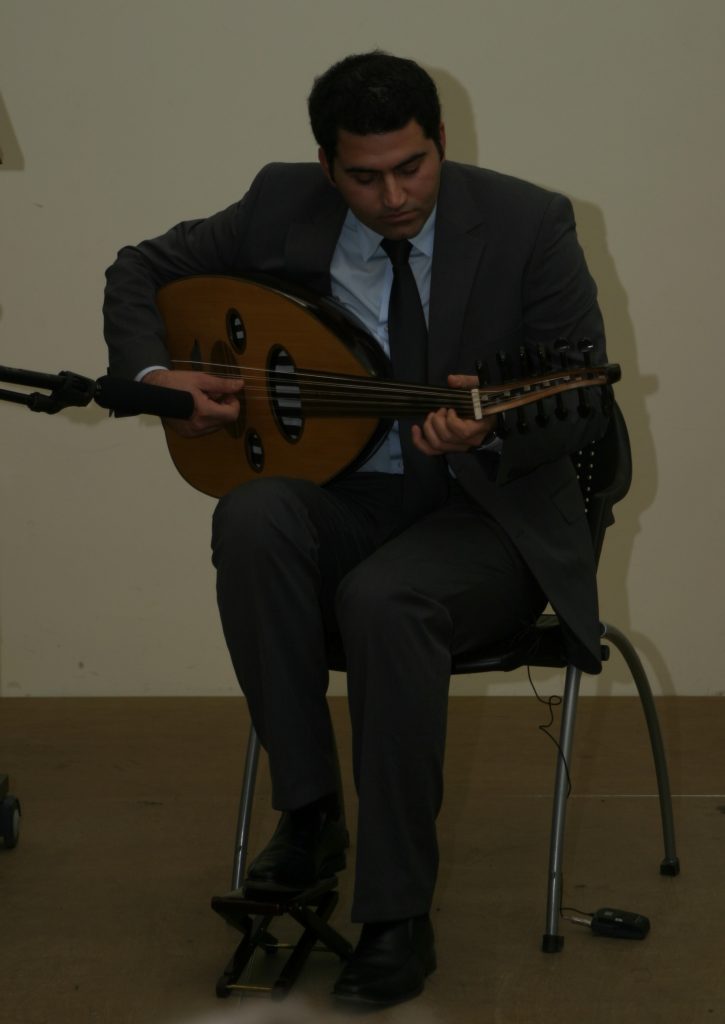
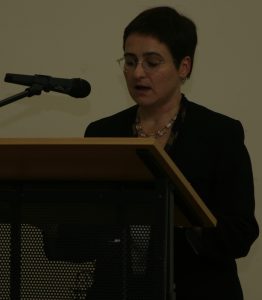
The celebration opened with a welcome speech given by two representatives of the Ibn Rushd Fund, Sami Ibrahim and Abier Bushnaq. “There was a choice of 32 candidates nominated by over 56 persons from all over the world. We would like to thank all who have taken part in the nomination. The participation in the nomination far exceeded our expectations. It shows, that the world of the cinema is a very concrete world, accessible to many people and of interest on a broad basis.”
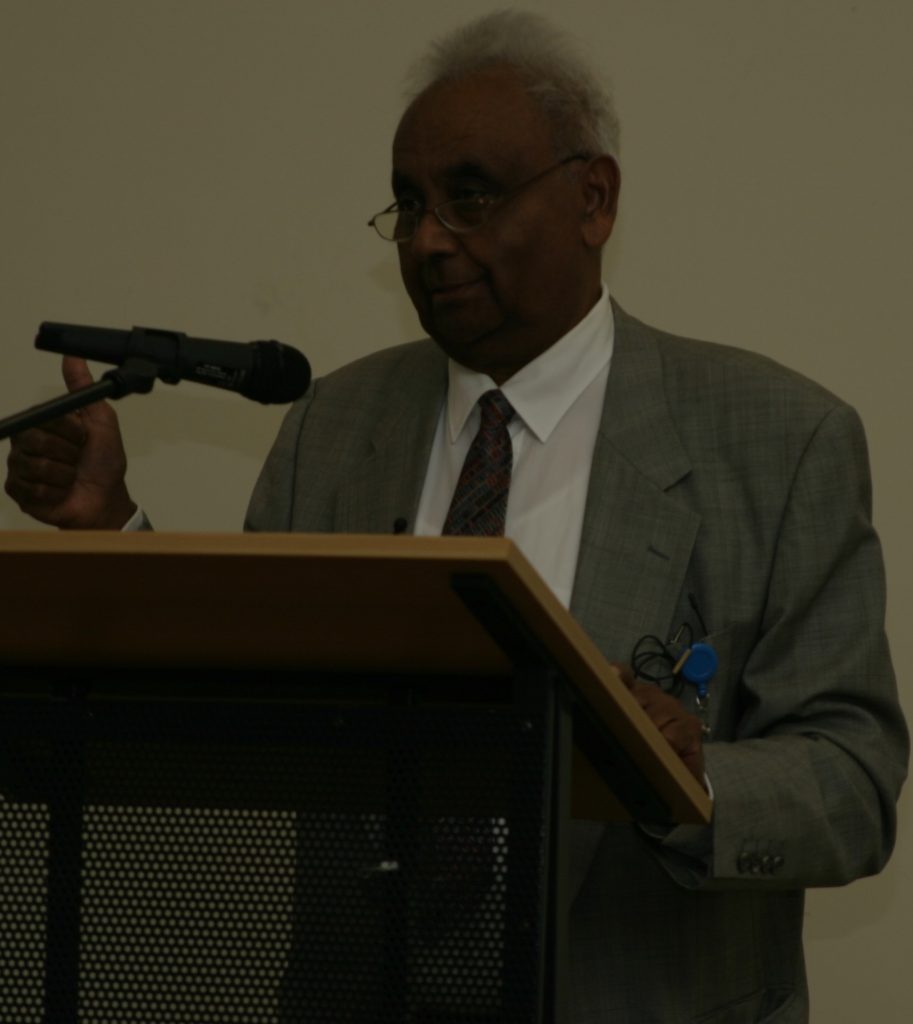
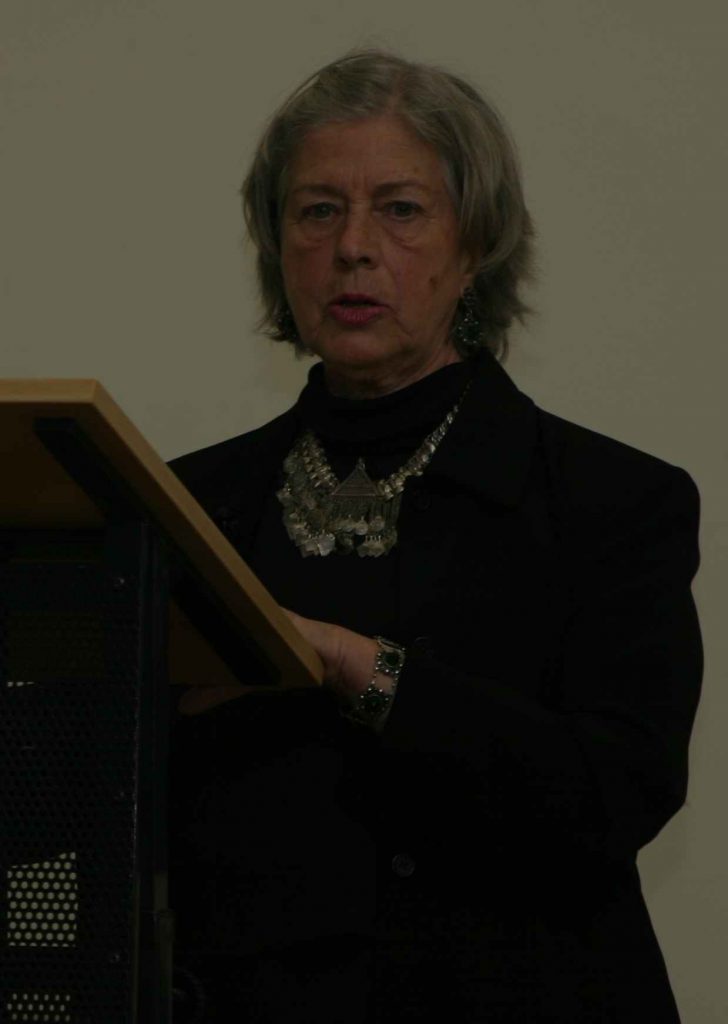
The celebration opened with a welcome speech given by two representatives of the Ibn Rushd Fund, Dr. Hamid Fadlalla andHeidewig ELHadidi. “There was a choice of 9 candidates from 6 Arab countries (…) Today we honour a critical thinker, engaged fighter and respected world economy expert, who has from a very early stage in his life pursued a politically courageous course (…) Sami Amin’s main conviction as we see it: “A social revolution is bound to fail if it is not accompanied by a cultural revolution.” Amin warns of a decline of democracy and regards democracy as an absolute necessary prerequisite for a fair economic development of all societies (…)
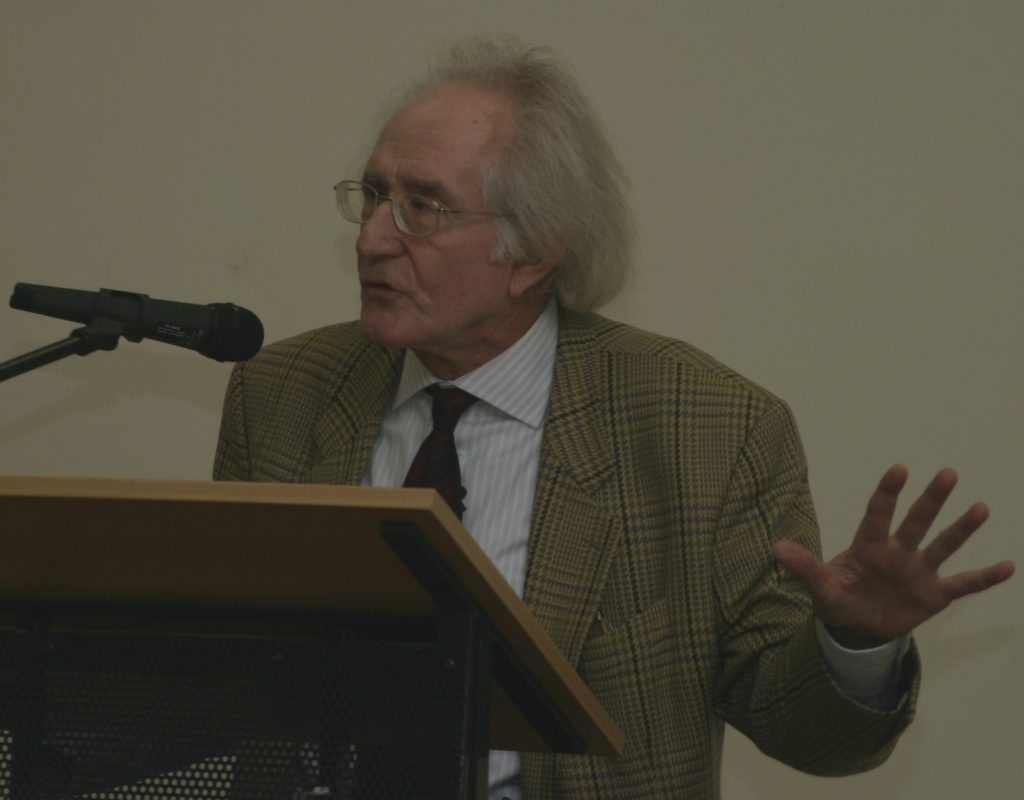
In his laudatory speech Prof. Dieter Senghaas (Bremen University) speaks about Samir Amin’s development from a critical, politically engaged student to a successful world economist and President of Third World Forums. “In all his works Amin proves himself to be a sharp analyst, at the same time he always was a political author (…) Astonishingly Amin has anticipated already in 1957 the criticism of positions that emerged ten to twenty years later as part of the argumentation of his intellectual adversaries in all detail. His criticism was also directed at Soviet Marxism (…)”
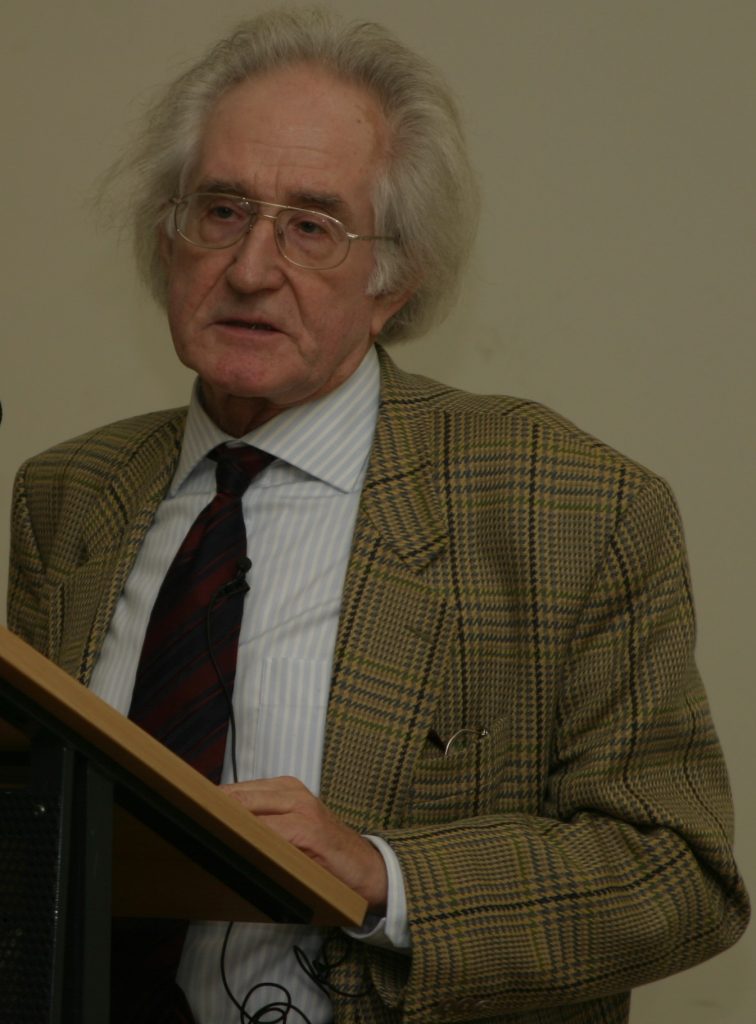
It should be clear from what was said that the agricultural issue was to Samir Amin a very central issue and was of a strategic developmental importance (…) The prognosis you could conduct from Amin’s analysis was, that in developmental countries] a transfer out of a periphery accumulation dynamic into a broader national economic development of the metropolitan capitalism type is unlikely to happen if not at all possible (…). Therefore his plea for a „déconnexion“/„delinking“. (…) Yet, a so defined strategy of an „autocentric development“ with the help of delinking cannot be imaginable without the active intervention of the state.”
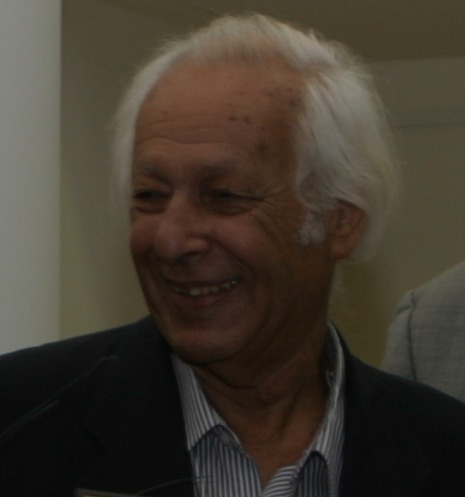
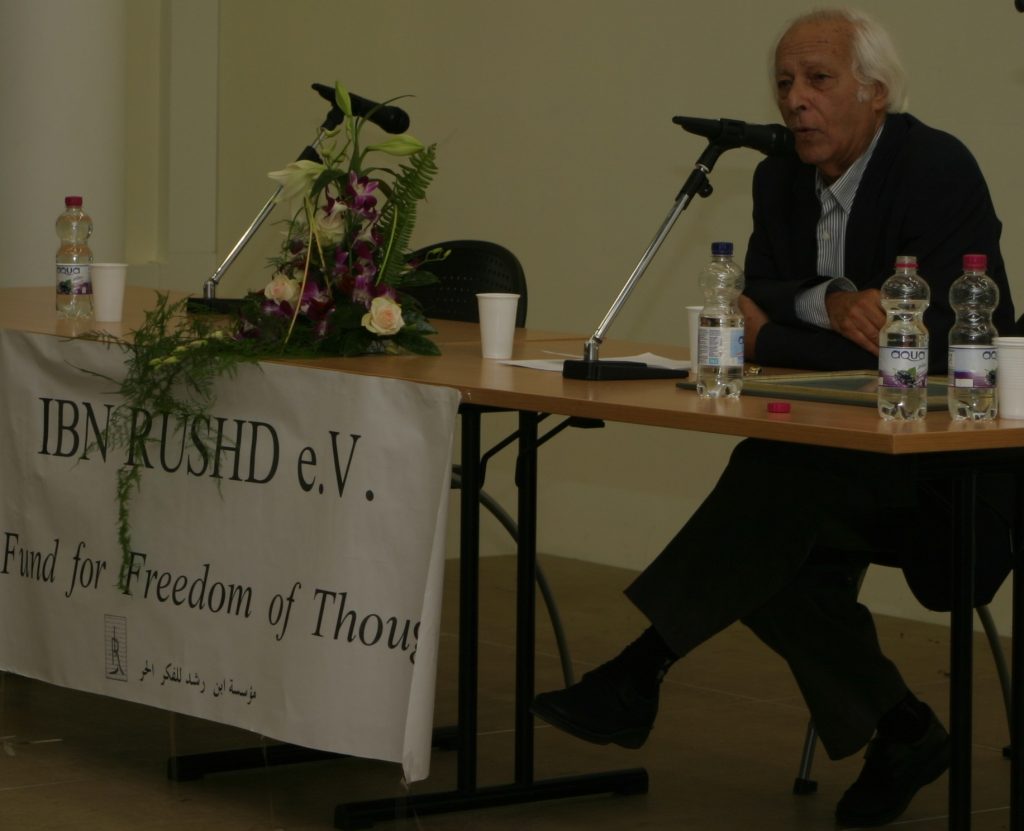
In his speech (entitled “Exiting the Crisis of Capitalism or Capitalism in Crisis?”) Prof. Samir Amin makes his position clear: “The world wide pauperisation is among other things caused by the crisis of capitalism”.
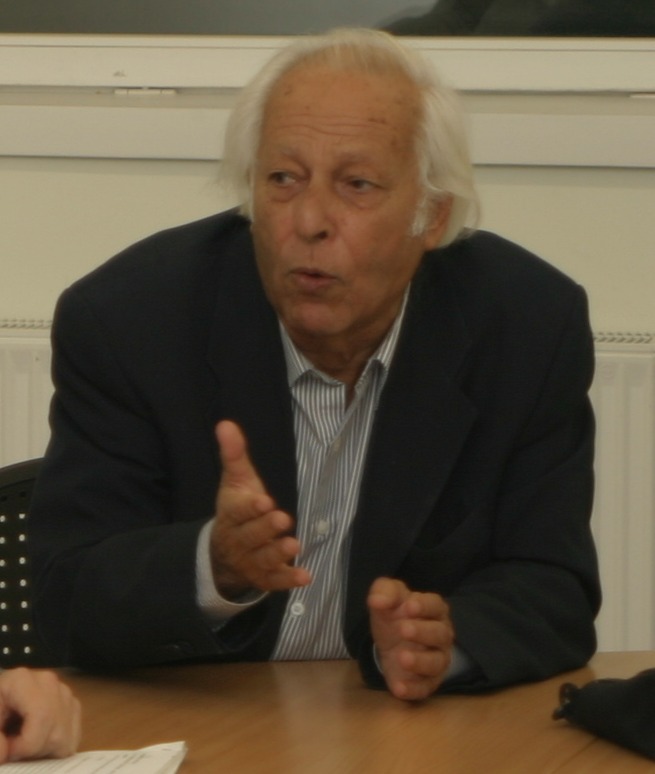
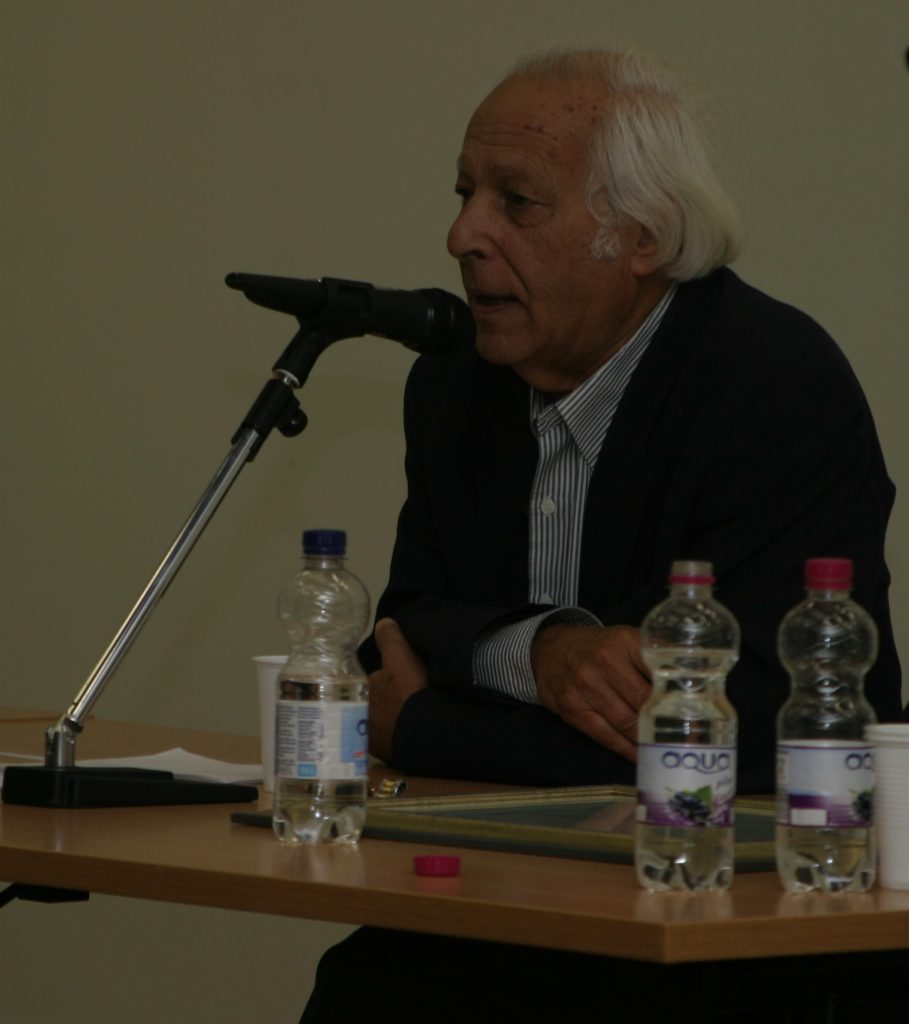
“Historical capitalism is all things to everyone, except that it is durable. It is but a short parenthesis in history. The fundamental questioning of capitalism – which our contemporary thinkers in their overwhelming majority deem neither ‘possible’ nor ‘desirable’ – is nonetheless the inescapable condition for the emancipation of the dominated workers and the peoples (those of the peripheries, i.e. 80% of mankind). And the two dimensions of the challenges are inextricably linked with one another.”
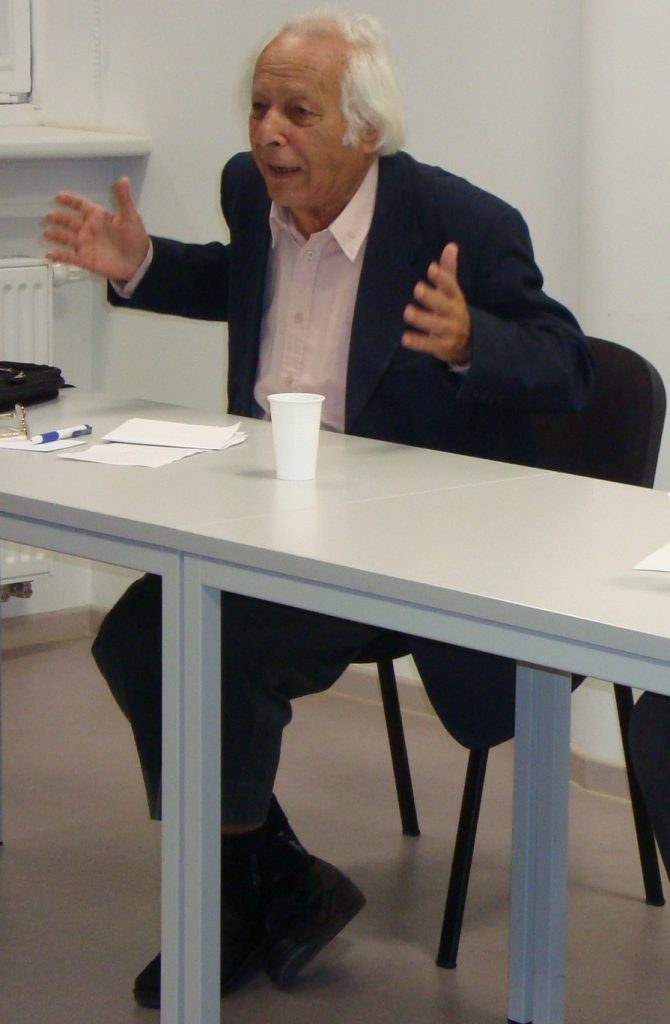
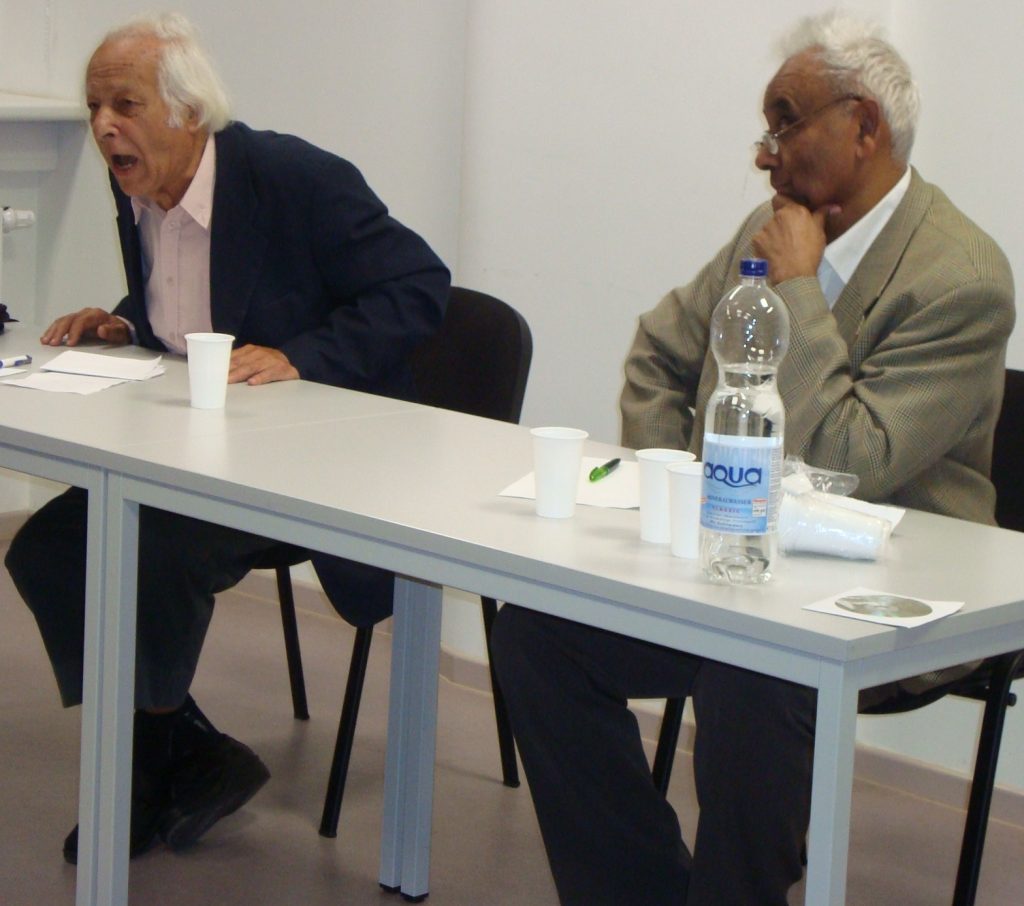
In this spirit, the ‘energy crisis’ is neither the product of the rarefaction of certain resources necessary for production (oil, obviously) nor the outcomes of the destructive effects of energy-devouring forms of production and consumption that are currently in place. (…) Nor is the food crisis caused by the production of bio-energy on basis of plantation on expense of food production, even though this mass production is reality and causes much damage (…) The liberal crisis forces one to direct one’s profound criticism on capitalism on the basis of Marxist thinking. This lecture is my contribution in this direction. (…) I end my speech with a citation of Gramsci: “I’m a pessimist because of intelligence, but an optimist because of will”.
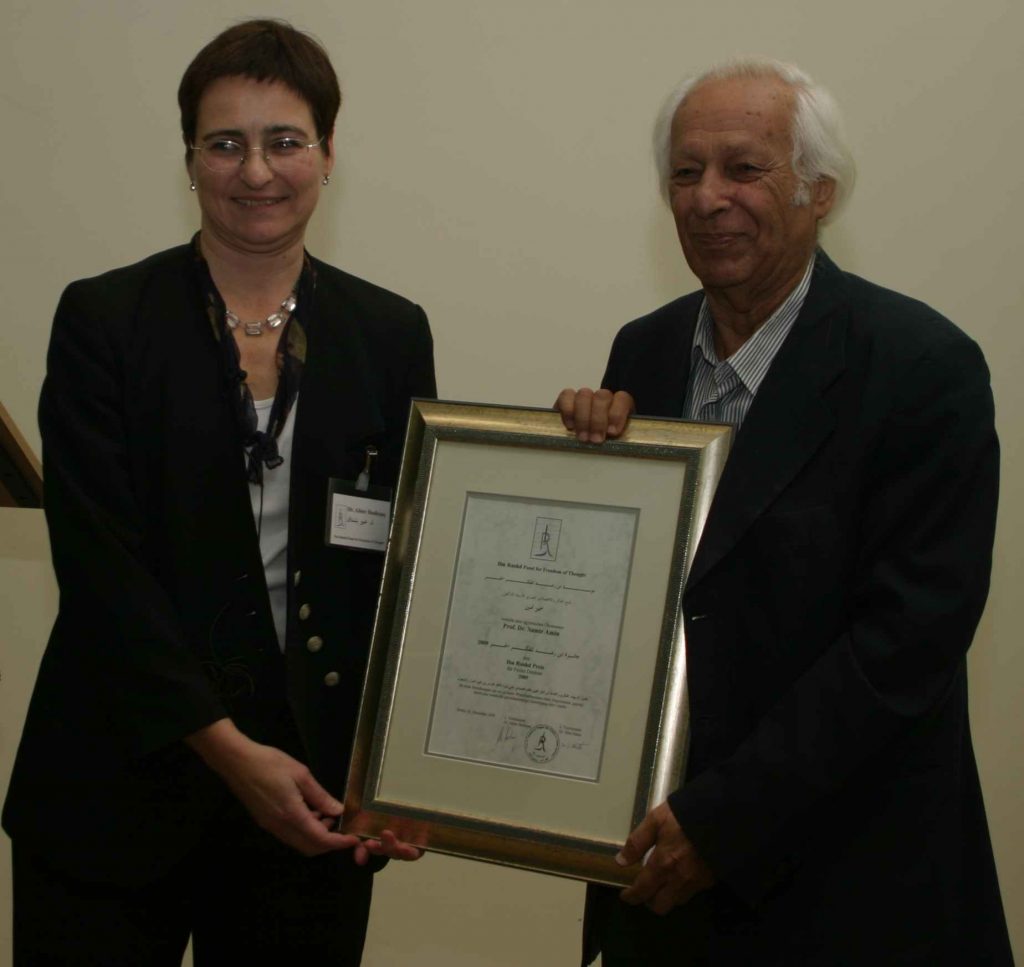
Ibn Rushd Fund for Freedom of Thought awards Samir Amin the Ibn Rushd Fund Prize 2009 “for his strife for an economic world order characterized by equality of participation between all countries, including developing countries.” Congratulations!
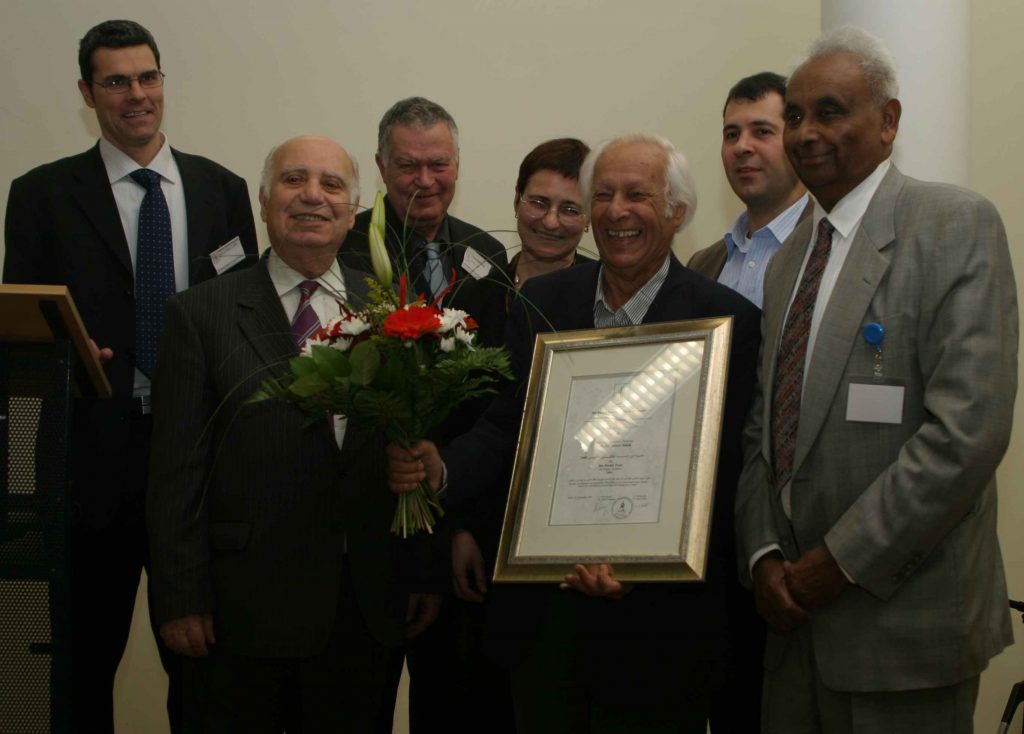
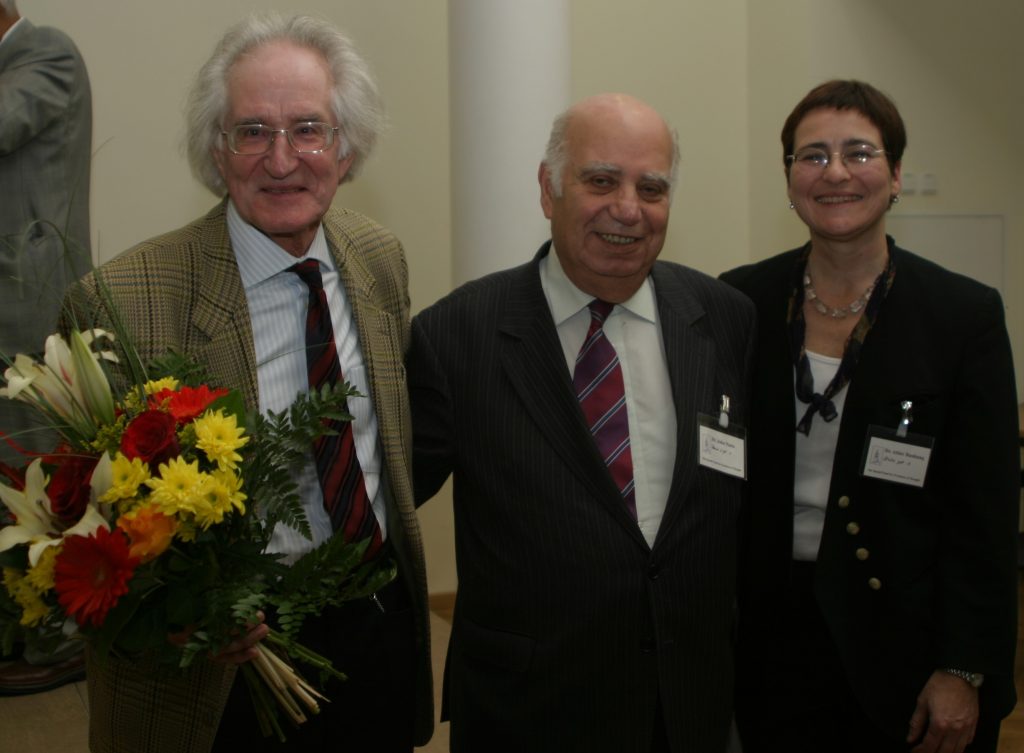
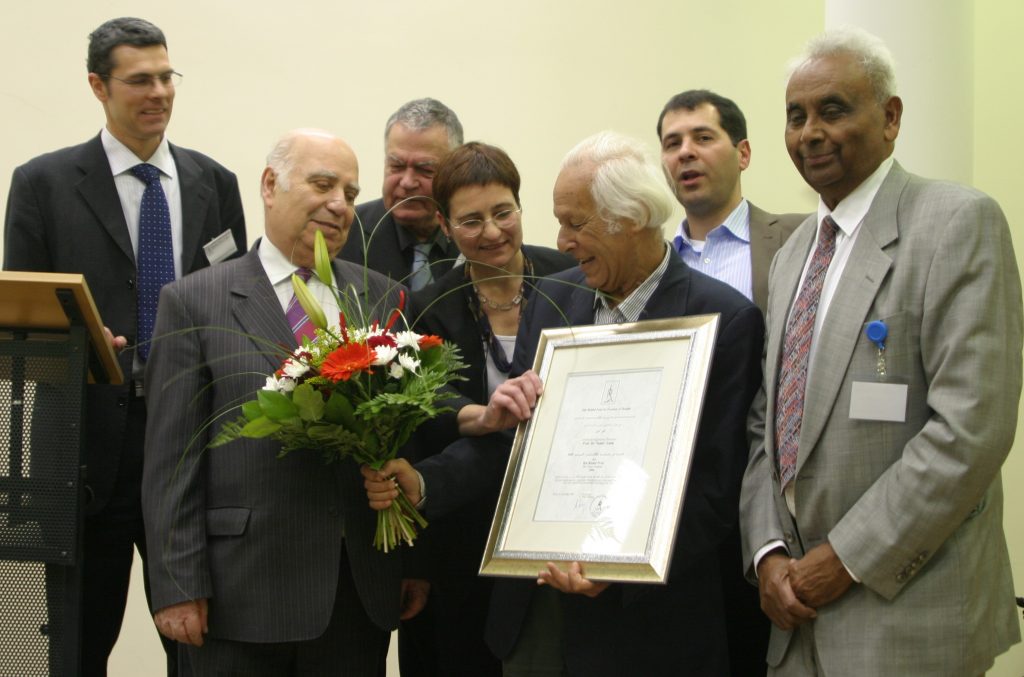
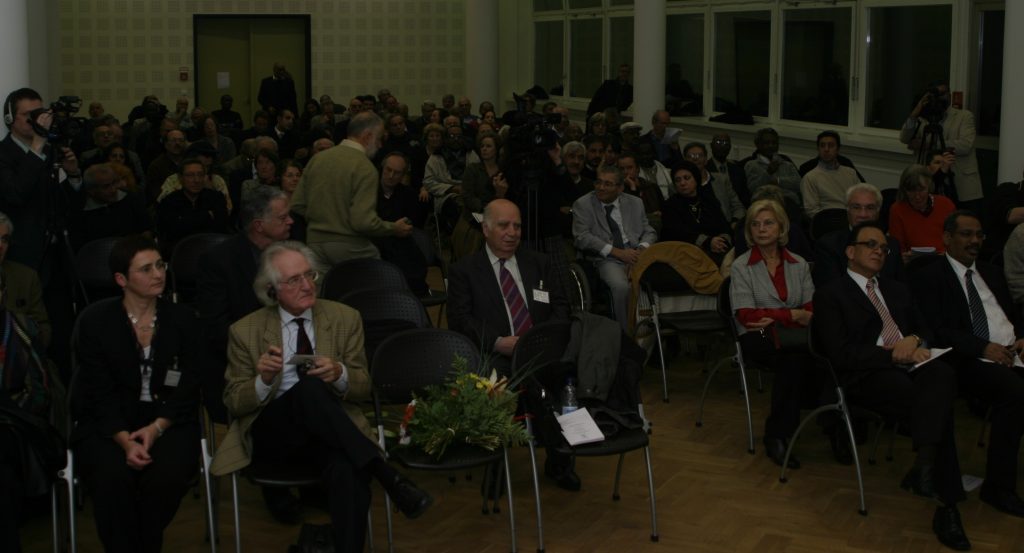
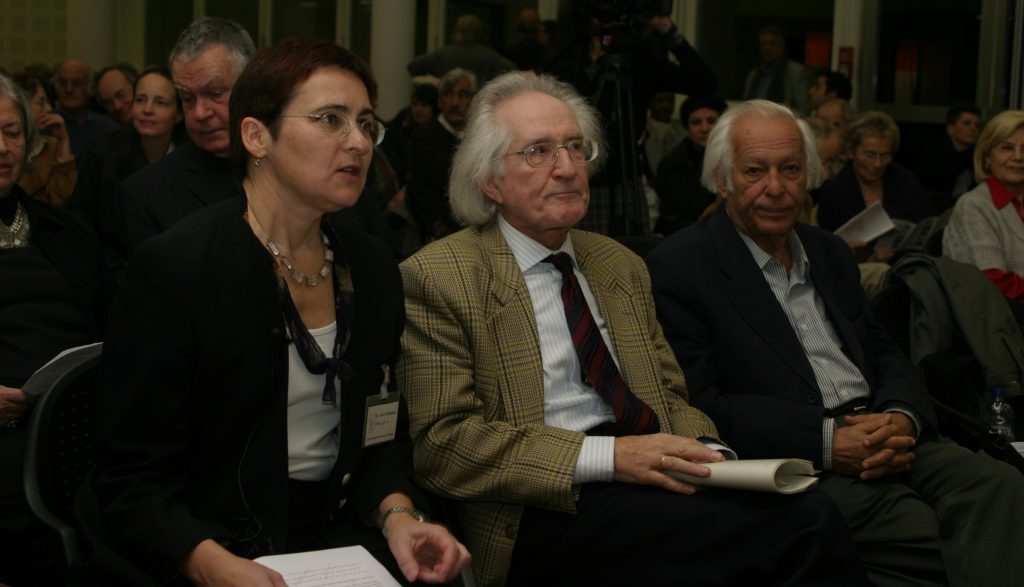
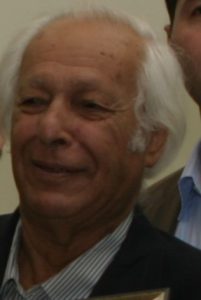
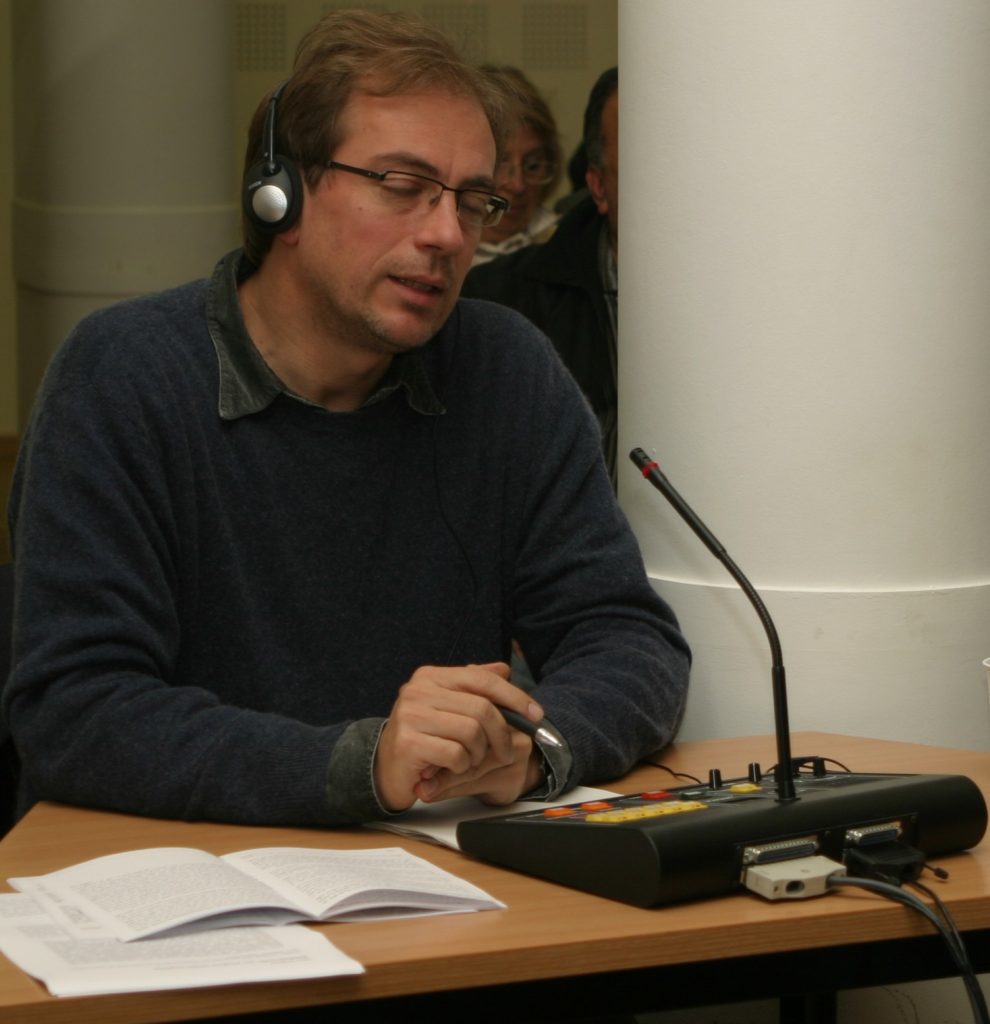
Some journalists took the chance to interview the prize winner (an-Nil TV Channel, Deutsche Welle, Radio Berlin Brandenburg and others). Dr. Günther Orth translates Prof. Samir Amin’s free speech simultaneously in his usual souvereignity.
